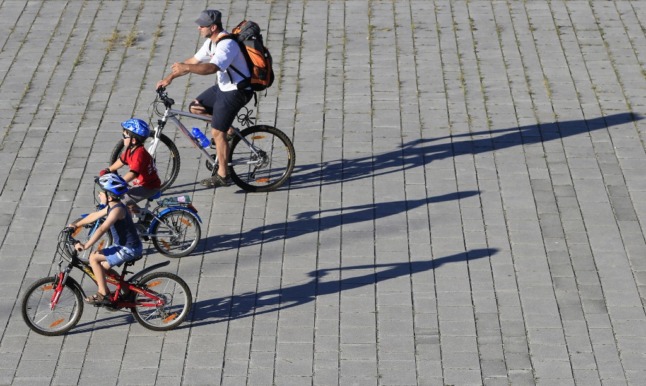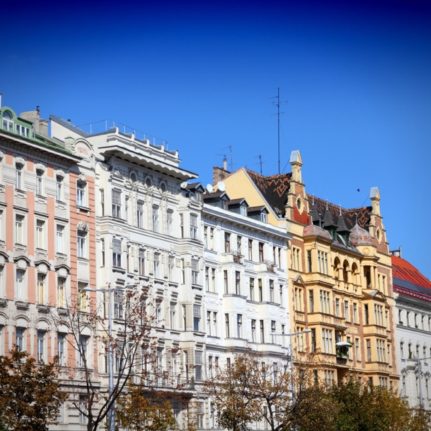The Austrian capital offers an expansive system of bike routes, with more than 1,400 kilometres of paths designed for cyclists, both within the city and extending into its outskirts. Statistics from 2021 show that locals use bikes for around 9 percent of their journeys.
But in response to our survey, many readers of The Local raised issues with these bike paths and presented ideas for ways to solve the problems.
More abundant and wider bike paths
Many respondents raised concerns about the city not offering enough bike paths, which often results in cyclists sharing the road with cars, potentially increasing the risk of accidents.
Most also noted that the existing bike paths present a high accident risk because they are too narrow and designed for shared use by both pedestrians and cyclists, as seen in the central ring around the 1st district, to use just one example.
One British reader, named Dominic had this to say about the central ring.
“It’s a disaster waiting to happen,”‘ he said.
“Stadt Wien has a weird obsession with street poles with multiple signs, which are too numerous to take notice of, let alone read. I strongly feel that most of these are an obstruction and pose a danger when numerous bicycles pass in each direction, while trying to make space for each other, as well as pedestrians,” he said.
“Most of these signs could be moved to one side or removed entirely.”
Another reader said “cycle paths along the main roads are way too crowded, creating danger for both cyclists and pedestrians.”
Better solutions for cyclists during construction work
Readers also mention that an alternative route for cyclists is seldom prepared when regular paths are blocked, and it is often difficult to find a new practical route to reach the planned destination on time.
One reader named Ali, originally from Turkey, said authorities need to keep cyclists in mind when planning improvements.
“Stadt Wien also should try to treat bikes as equal as cars. I observe that when there is a construction work on a road or bridge (such as Praterstraße), they provide a solution for cars but basically block the bike lane,” he said
Beorn, a reader originally from South Africa, agreed and would like to see more efforts to improve the situation.
“There are so many cycle paths that are blocked lately due to roadworks with no decent detours. It would be nice if there was some effort taken to make decent alternate paths while the construction is ongoing,” he said.

Increased consideration by car drivers and the police
Many of our readers want cyclists to be treated with more consideration. They feel that car drivers often disregard them and would also appreciate the police’s involvement in creating a more cyclist-friendly environment.
Ali said that drivers need to be more attentive to prevent accidents involving cyclists.
“Some drivers do not treat bikes as important as their cars,” he said.
“They do not check if a bike passing through a road within the bike lane and risk our lives. Also, there are a lot of drivers not respecting bike lanes,” he said.
“Bike lanes should be separated, or the police should put more attention to drivers violating bike lanes while driving or by parking. The number of bike police can be increased, and they can check both violations caused by the bikes and violations by car drivers against the bikers.”
Samy, a reader from Spain, would also like to see more surveillance from the police, especially regarding accidents.
“If just the police checked the street cameras when a driver hits you with the mirror and run away even though I am cycling in the bike path, I would be very happy,” Samy said.
Restricted car access in the city
Our survey revealed that many of our readers would like to see stricter restrictions on cars in the city. They support limiting the number of passenger cars in the city centre and increasing fees for driving in specific areas.
One French reader Ovel expressed his frustration with the current situation.
“Cars should cost more, and roads should be more painful for them. Bike paths are too small or just plain missing, stupid cars feeling like on a speedway.”



 Please whitelist us to continue reading.
Please whitelist us to continue reading.
Member comments